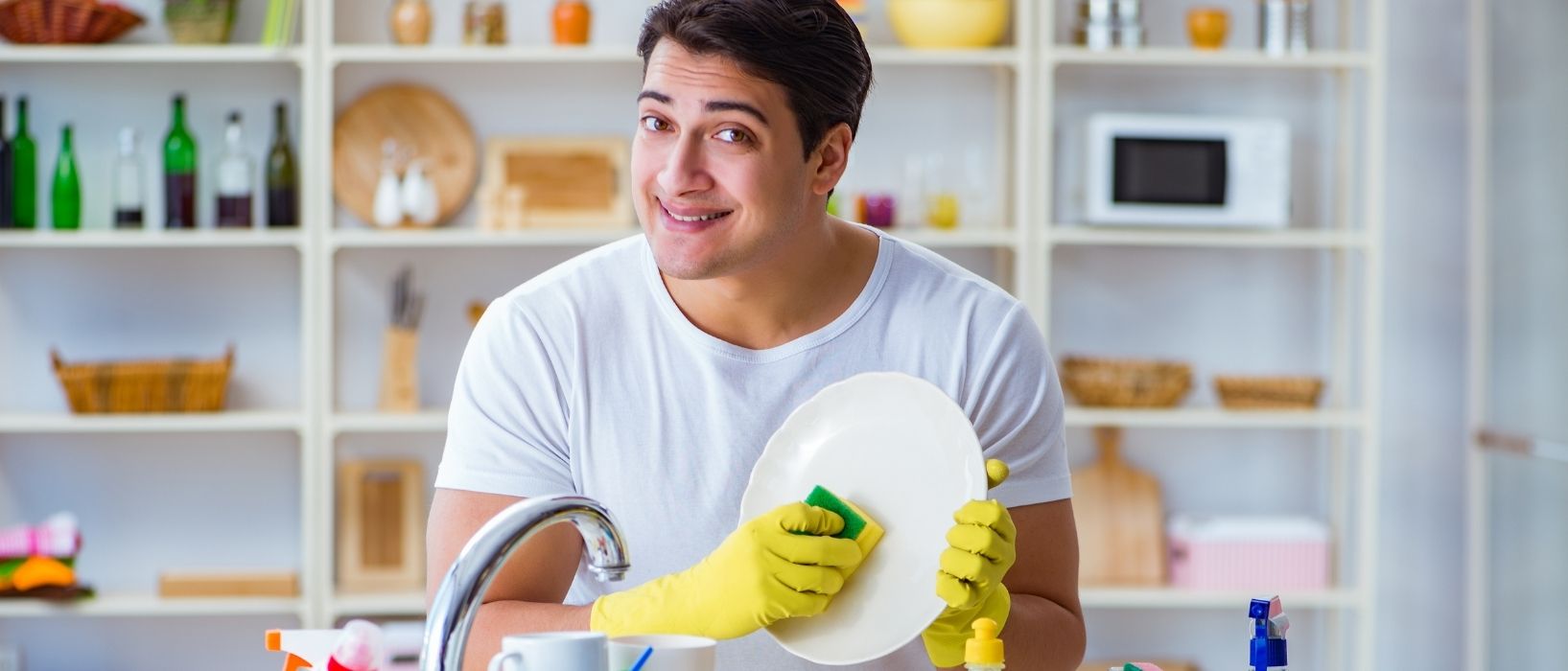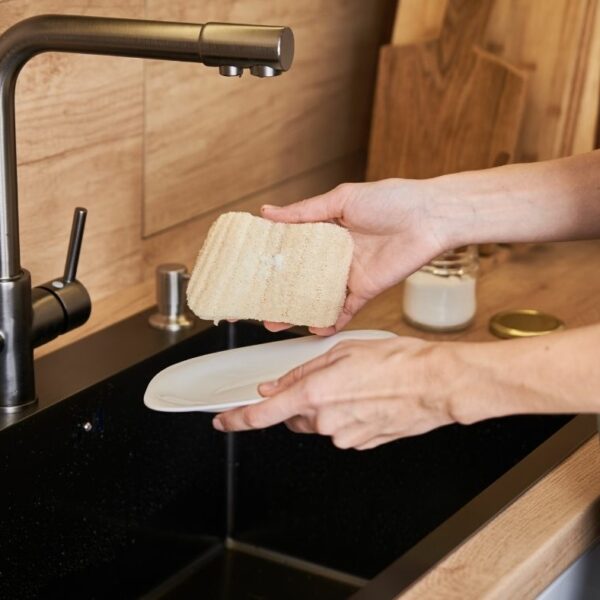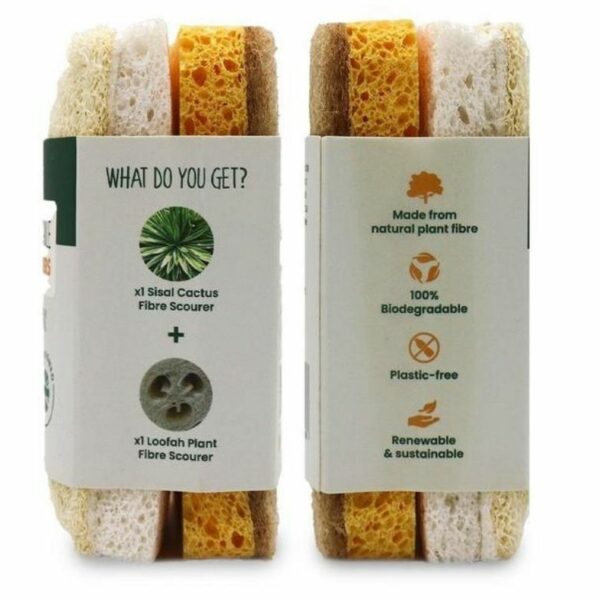
Everyone knows that plastic is bad, right?
That’s why we are ditching our shampoo bottles for bars, our toothpaste tubes for toothpaste mints and most of us take our reusable bags to the supermarket.
On top of that, most of us recycle paper, tin, plastics (those that can be recycled) and food waste.
Some of us go further and compost food waste, use a water butt and grow our own fruit and veg.
But have you stopped using sponges in your household or office kitchen sink?
What’s wrong with a kitchen dish scrubbing sponge?
Unfortunately, lots!
For a start, the standard dish scrubbers are designed wastefully and don’t last very long at all.
How frequently do you replace your kitchen sponge – once a week, twice a month? Imagine that happening millions of times per week all over the world. It’s a lot of waste being created.
What’s worse still is that these sponges are often made from mixed plastics such as polyester and polyurethane which, whilst good at cleaning, are made from fossil fuels (oil).

With every use of one of these sponge scrubbers, we are creating micro-plastics that wash straight down our drains and into the water cycle, ending up in our rivers, the ocean and even drinking water.
Microplastics then stay in the ocean forever, either being eaten by marine life or making their way into corals and coating the seafloor.
Our discarded dish scrubbers also end up in landfill as they are made of different types of plastics and therefore can’t currently be recycled.
Let’s look at the maths behind dish sponges.
If you throw out your sponge every two weeks, it means you will throw on average 26 away per year.
Let’s say only one-quarter of the global population of 7.9 billion people use dish scrubbers, that would mean around 51.35 billion dish scrubbers are thrown away each year.
Even if the figure was half of this or a tenth of this, it’s still a mind-boggling and environment damaging number.
Where is all the landfill going to come from to keep this up?
But it’s quite simple for us all to be a part of the solution to this issue.
The small steps that each of us takes, when scaled, will have a significant positive global impact.
So what can we all do?

There are lots of great products out there that can replace your plastic sponges.
The best products to look for are compostable or biodegradable products that are also 100% plastic-free.
There are a lot of sustainable plant-based replacements such as the coconut fibre scrub pads made by Safix.
You can also get kitchen loofah’s which have been grown sustainably!
If you want to be super sustainable, you can even grow your own kitchen loofah and the National Trust have produced a guide on how to do just that!
One of Play It Green’s favourite sustainable solutions is the Eco Vibe Compostable Sponge and Scourer duo pack.
The pack comes with a compostable sponge with a sisal scouring side – for lighter scrubbing and a compostable sponge with a loofah scouring side – for heavy-duty scouring.
The scourers come with low-impact packaging are plastic-free, biodegradable and made entirely from plants that are grown both renewably and sustainably.
To help our members take another step to a more sustainable future, you can ditch your dish scrubber and save 15% on sustainable replacement.
Simply head over to the Eco Vibe site and use the code TRY15 at checkout!
We will all get there – one step at a time!
‘Everyone thinks that being sustainable is difficult, costly and life-consuming, but it doesn’t have to be that way. If break it down and take it step by step, with the help of companies like Eco-Vibe, we call all go on an enjoyable and meaningful journey to a better future.’
Richard Dickson – Co-founder, Play It Green
Join Play It Green for the cost of a coffee each month and we will help you to:
REPAIR the planet through reforestation, REDUCE your footprint with weekly tips and sustainable discounts and REGIVE 10% to a good cause, of your choice.
